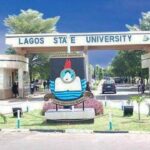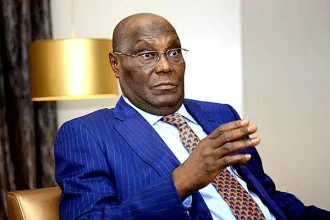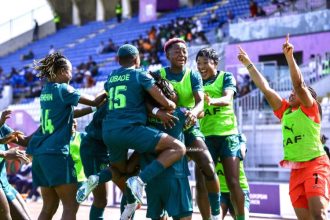The National Coordinator of the National Counter Terrorism Centre, Major General Adamu Laka, has assured Nigerians that security agencies remain committed to rescuing the remaining 87 Chibok schoolgirls, Leah Sharibu, and all other kidnap victims still held by terrorists and bandits.
Speaking at a recent event, Laka emphasized that while progress has been gradual, the government continues to pursue both negotiation and military options to secure their release.
Laka provided context about previous rescue operations, stating, “The armed forces and other security agencies have not relented; hence, in the past, aid workers of UNHCR, IOM, and others in captivity, particularly some Chibok girls, were rescued through negotiations, operations, and others.” He stressed that the lack of recent news about these cases should not be misinterpreted as inaction, adding, “We have not given up hope in our efforts. Even in the case of Leah Sharibu, we are still on it.”
The military officer, who was involved in initial rescue operations after the 2014 Chibok abduction, explained the phased nature of these efforts. “Since when they were kidnapped, those who were rescued were not just rescued at one time. It was a gradual process. Negotiations were done, trying to get them out. Operations were conducted also. Some were rescued,” Laka recounted. He noted that some of the girls had been married to insurgents while others had been freed over the years.
Laka urged the public to broaden their concern beyond the Chibok girls, highlighting successful rescues of aid workers from organizations like UNICEF and UNHCR.
“Our prayer is that the whole 87 or 80-plus kidnapped girls that are left will be rescued, by God’s grace,” he stated, while emphasizing ongoing efforts to secure all kidnapping victims across Nigeria.
UK Condemns Zamfara Massacre, Supports Anti-Kidnapping Efforts
The British Deputy High Commissioner, Gill Levers, strongly condemned the recent killing of 38 kidnap victims in Zamfara State after bandits collected a N50 million ransom.
“Very frankly, I want to express my condolences to the people of Zamfara State over that horrible kidnap where, even when ransom was paid, only a few people were released and the others were murdered,” Levers stated. She described the incident as “an unspeakable crime” with devastating impacts on communities and the nation’s development.
Levers highlighted the UK’s support through the Multi-Agency Kidnap Fusion Cell (MAK FC), a joint initiative with British security agencies. “The multi-agency Kidnap Fusion Cell Centre has been a three-year initiative to create a collaborative response from Nigeria’s security forces to tackle the threat of kidnapping across the Nigerian Federation,” she explained.
The MAK FC, officially launched in December 2023, represents a key milestone in developing coordinated strategies against kidnapping.
Strengthening Nigeria’s Anti-Kidnapping Framework
Major General Laka detailed the objectives of the MAK FC program, stating, “This is the primary purpose of this program: to close the gap between national-level coordination and state-level response.” The initiative aims to improve intelligence sharing, early warning systems, and operational synergy between federal and state security agencies.
Laka analyzed the evolution of kidnapping in Nigeria, noting its transformation into a sophisticated criminal enterprise. “The nature of kidnapping today has changed. What used to be occasional, opportunistic crimes have become systematic operations involving well-organised and well-armed criminal networks,” he observed. These networks, often linked to terrorist groups, now use kidnapping as a major revenue source to fund their operations.
The British Deputy High Commissioner emphasized that the MAK FC initiative reflects the strong security partnership between Nigeria and the UK. “The MAC FC and the training that’s going on this week came out of a deep partnership that the United Kingdom and Nigeria have,” Levers said, describing it as part of a broader strategic relationship based on mutual trust and respect.
As Nigeria continues to confront its kidnapping crisis, the government and its international partners remain focused on rescuing victims, dismantling criminal networks, and implementing long-term solutions to this persistent security challenge. The establishment of specialized units like the MAK FC demonstrates a structured approach to addressing the complex issue of kidnapping across the nation.







